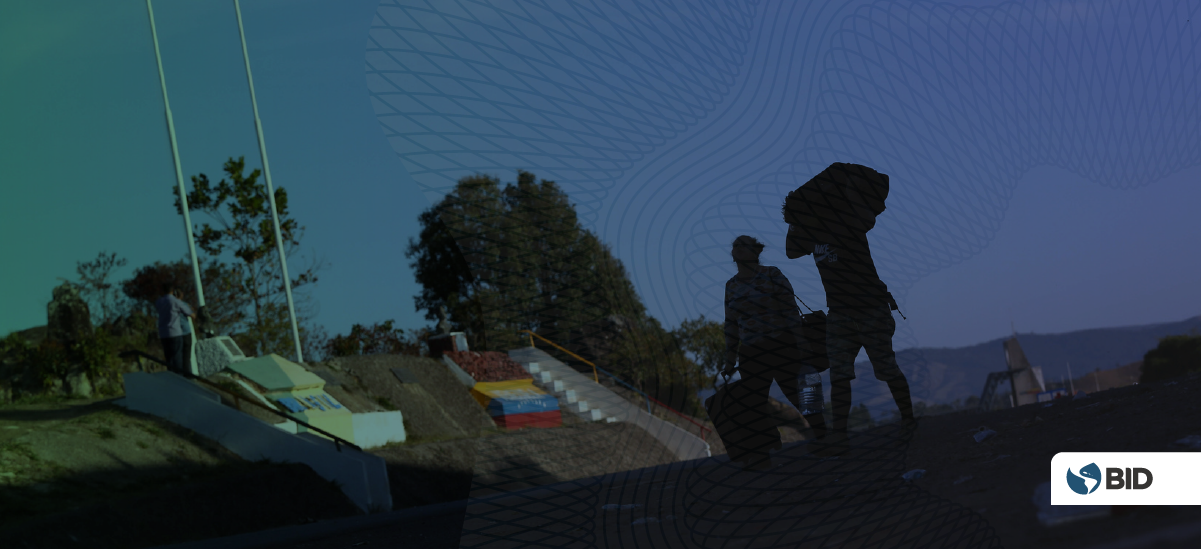The remittances received by the families of migrants in Latin America and the Caribbean constitute a major contribution to their subsistence and in many cases are a determining factor preventing families from falling below the poverty line. To deepen knowledge of remittances received in the countries of Latin America and the Caribbean, at the Interamerican Development Bank (IDB) we have initiated a process of monitoring and analysis of remittances based on data published by the central banks of the region.
The new publication of the IDB analyzes the evolution and characteristics of remittances to Latin Americana and the Caribbean in 2021. As we had anticipated in earlier blog posts, remittances flows to the region hit a new record in 2021. The reopening of the economies in remittance sending countries allowed all of the labor force, and immigrant workers in particular, to return to their activities, improving their incomes and allowing them to sustain or even expand the support in the form of remittances that they send to their families.
During 2021 Latin America and the Caribbean (LAC) received 127.6 billion dollars in remittances, which constitutes an annual growth of 26.0%, the highest registered in the past 20 years. This was nearly triple the level in 2005, with the highest growth rate in history.
Migrant efforts during the COVID-19 crisis
At the beginning of the pandemic, in the first quarter of 2020, the decline in employment and incomes of migrants suppressed their capacity to send remittances. Nonetheless, in the following months remittances regained their growth path as a result of the efforts of migrants to maintain their support.
Mexico remained the principal recipient of remittances in the region, with US$ 51.6 billion, equivalent to 40.4% of the total received in LAC. Central America received 26.3% of remittances income in the region (US$ 33.5 billion), remittances received by countries of the Caribbean represented 14.2% of the total (US$ 18.2 billion), and South America was the recipient of 19.1% (US$ 24.3 billion).
Growth in 2021 was the highest registered in this century.
Although the growth of remittances received by individual countries is heterogeneous, flows to the region as a whole have grown each year with only one interruption due to the global financial crisis in 2009. The growth in 2021 was the highest registered in the period for which statistics are available (26.0%). Remittances to Mexico increased 27.0%, to Central America 29.4%, to the Caribbean 20.2%, and to South America 23.8%.
Remittances support the economies of the region
On average, remittances to LAC were equivalent to only 2.6% of GDP in 2021. But for many of the poorer countries in the region, remittances represent much higher fractions of the economy. In Central America and the Caribbean, the averages exceed 12%, reaching 28.0% in Honduras and 24.4% in Jamaica, for example. In Mexico, despite being the main recipient country, remittances equate to only 4% of GDP, and in South America the figure is only 0.7%.
Recent migration flows in Latin America and the Caribbean have had significant effects on receiving countries, generating social pressure around migrants’ need for services in their host communities. However, migration also brings opportunities.
In Latin America remittances are an income source for families, make a major contribution to GDP, and are a tool for financial inclusion. To truly capitalize on them as a development tool they need to be measured and analyzed.


Very interesting. Any figueres for 2022? Any estimates? Wonder if exporting people to US has become a political goal to offset the balance of payment problems?
We have recently published 2022 data on remittances to the region in our Spanish blog.
https://blogs.iadb.org/migracion/es/remesas-hacia-america-latina-y-el-caribe-en-2022-el-crecimiento-llego-a-su-techo/